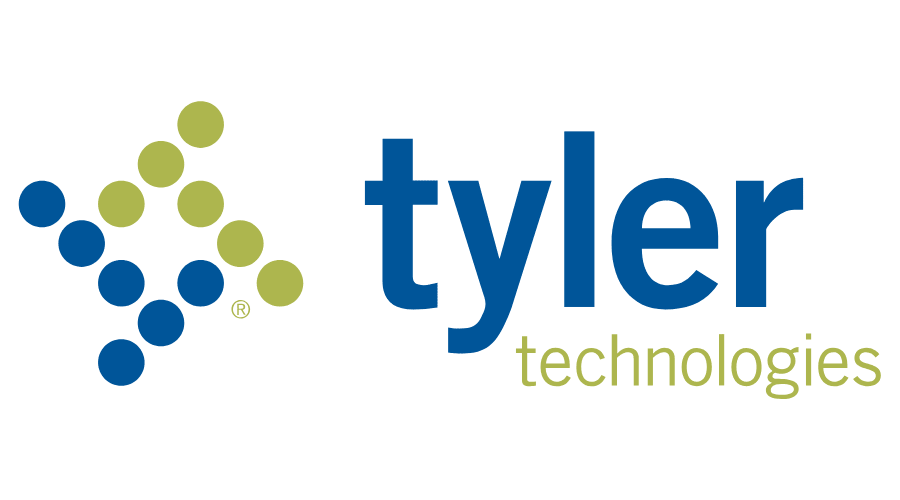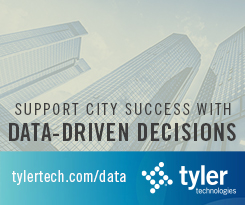
Photo: Kawee Wateesatogkij | Dreamstime.com
The benefits of building a data culture in cities
06 September 2022
Sponsored by: Tyler Technologies
To get the best from their data, local governments need a city-wide approach. That means getting all departments on board to understand the opportunities and risks related to data and supporting them to use it to its greatest potential.
Achieving this means changing the perception that data is something that happens in the IT or innovation department and driving a data culture throughout the whole organisation.
The County of Santa Clara, for instance, established an internal Open Data Academy with a carefully designed curriculum to promote peer-to-peer learning and sharing, encourage hands-on practical sessions and projects, and foster a supportive network.
Others, such as Carlsbad, are laying the groundwork by establishing city-wide policies which set out the structure and framework for the way that everyone collects, uses, governs and publishes data.
Stockton’s data story
Organisational design and support from the top are also key.
When Harry Black joined Stockton, California as city manager in February 2020, the city was bouncing back from bankruptcy in 2015. Although its finances were in much better shape, the city needed to play catch-up in certain areas such as improving some services and communication with the public.
Building on work he had done as city manager for Cincinnati, Black set up an Office of Performance & Data Analytics (OPDA) within three months of taking the helm and hired Katie Regan, a programme manager on Stockton’s enterprise resource planning team, as the office’s director.
“Our mission at OPDA is to enable the city of Stockton to deliver better, faster, and smarter services,” said Regan. “My office is here to facilitate and support our departments and service providers to help them shine and do their work to the best of their abilities.”
One of Regan’s first moves was to work with each of the city’s department directors to appoint data coordinators.
“Right off the bat we tried to find the champion who loves data and also uses the data within the department,” she said.
Enthusiasm grew and soon departments were proposing and championing their own data projects.
Stockton launched an open data platform in June 2021 and opted to work with US tech company Tyler Technologies, which specialises in software built for the public sector.
One example of the impact of Stockton’s new Office of Performance & Data Analytics relates to potholes.
Digging into the data, the city can see geographically where the most service requests are coming in and prioritise accordingly. Data shows that the city has significantly improved the time it takes to fix potholes.
That isn’t the full story, though.
“We need to consider that some people might not have the devices or the internet connection that would let them submit these service requests,” said Regan. “The next question is: What other data could be used to close this gap? Perhaps service requests for potholes can be balanced with a pavement condition index, which indicates the general condition of a pavement section.”
The work of Stockton’s Office of Performance & Data Analytics continues to evolve but Regan says staff are already energised by data and how it can empower them to improve city services and communicate effectively with the public.
Taking a step back
Creating a data culture doesn’t happen in a vacuum. The first step is creating a vision, says Christopher King, Director, State & Local Government, Data & Insights Division at Tyler Technologies.

He commented: “Before you think about procuring a platform or anything, the key is to define what the organisation wants to achieve. What is the ultimate goal?”
This could include improving performance internally or being more transparent. It could start with equitably fixing potholes and it could scale to a bold ambition, such as Fulton County’s data-driven initiative to reduce repeat arrests and address rates of mental illness among jail populations.
King says Fulton County typifies how to build a strong data culture because it required trust and sharing data across systems that do not traditionally collaborate in this way to gain a holistic picture, as well as the development of a legal data-sharing agreement. This was underpinned by a commitment to a shared goal.
Once the foundations are in place, the right technology can help to cement a data culture.
“To be truly effective, you need to have everybody from an executive to a frontline government knowledge worker being able to access the data that they need to do the job, to be able to work with other people throughout their organisation and ultimately be able to provide valuable insights,” said King.
“And if you can allow people throughout the entire organisation to do that work, it’s going to maximise what you get out of the data and drive towards that mission critical outcome.”
You can’t manage what you don’t measure – establishing the right metrics and breaking data out of silos is key. Learn more about how Tyler Technologies can help your city.












